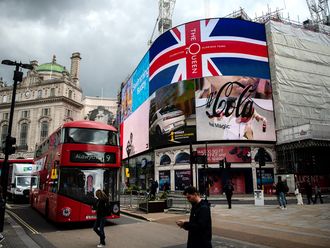Hyderabad: A southern Indian state declared a cyclone alert and evacuated more than 50,000 people Thursday as the region braced for its worst storm in 14 years.
Cyclone Laila was expected to slam into the coast of Andhra Pradesh state from the Bay of Bengal later Thursday.
Heavy rains and strong winds killed at least 15 people over the past 24 hours, including four workers when an industrial workshop collapsed because of heavy rain, authorities said. At least 55 fishermen were reported missing.
Even before the cyclone hit, some parts of the state had been hit by up to 1 foot (32 centimeters) of rain, officials said. Along the state's coastal districts, officials ordered fishing vessels to stay in port, said the state’s Chief Minister K. Rosaiah.
"We are fully geared to face this natural calamity," Rosaiah said.
More than 50,000 people were moved from coastal and low-lying villages into temporary shelters in schools and government buildings, said state revenue minister Dharmana Prasad Rao. The state administration has identified 800 villages as vulnerable and were evacuating people before the cyclone hits, he said.
The state government set up control rooms in the nine coastal districts to coordinate any rescue missions, and helicopters and buses were on standby to evacuate more areas and deliver relief supplies, he said.
Strong winds uprooted trees, power lines and billboards, blocking off roads in many places. At least six districts were hit by power outages and hundreds of villages were in darkness for more than 10 hours.
Authorities on Wednesday decided to open 120 relief camps in Machlipatanam, a town considered to be the likely cyclone landfall point, said Piyush Kumar, the district administrator.
Kumar said people were being moved to high ground from 83 villages in the area, about 350km east of Hyderabad, the capital of Andhra Pradesh state.
Waves as high as 2 metres could lash the coast, the state meteorological office warned. More than 10,000 people died when Andhra Pradesh was struck by its worst cyclone in 1977.












